
Summer 2018 Mini Workshops
This summer’s mini-workshop series is designed to provide introductions to various topics of interest to lab members. Weekly topics are chosen based on interest levels of lab members.

This summer’s mini-workshop series is designed to provide introductions to various topics of interest to lab members. Weekly topics are chosen based on interest levels of lab members.
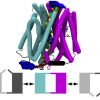
We show that one of the best-studied secondary active transporters, the lactose permease LacY, goes through an occluded conformation during its transport cycle. We propose an atomically detailed model of the apo-occluded state. The simulations predict the formation of a transient salt bridge that has been hypothesized in the canonical model for transport of LacY. The simulations are validated by comparison to experimental EPR DEER data, using a new approach to simulate spin-label distance distributions through post-processing of molecular dynamics trajectories. We also define a set of order parameters that consistently classify all known MFS transporter structures as outward-open, occluded, or inward-open conformations.
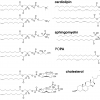
We are reviewing the evidence for direct effects of lipids on the transport properties of ion channels and active transporters. For ion channels it has been convincingly shown that specific lipid-protein interactions can directly affect their function. For transporters, the evidence is more ambiguous. In all areas, however, the use of computer simulations extends the way in which we understand protein-membrane interactions.

The course will teach you the theoretical background on how to simulate systems at the atomic scale (e.g. using molecular dynamics), you will learn to program some of the fundamental algorithms, and you will be using state-of-the art software to run simulations of problems in areas of active research. The focus is on bio/nanophysics but there’s room to accommodate individual interests. The course will be half lecture, half hands-on work in a computer lab.
Note that this course is currently not scheduled. It ran the last time in Spring 2013.
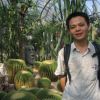
Long Liang majored in Biology in his undergraduate study, and shifted to Physics for his PhD study. He hopes to combine his background in Biology and Physics to understand life in terms of the more fundamental Physical laws. In his rotation project he worked on constructing a validated model of a human neurotransmitter transporter. Long is now part of the Complex Materials Group and works on his PhD under Professor Yang Jiao.
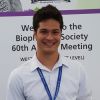
Sean was a Ph.D. student in physics working on computational methods for sampling and quantifying macromolecular conformational transitions. He graduated in 2017.
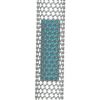
As part of his final project for the course Simulation Approaches to Bio- and Nanophysics (ASU PHY494/PHY598), C. Michael Gilbert performed classical molecular dynamics simulations of a smaller carbon nanotube in a larger one.